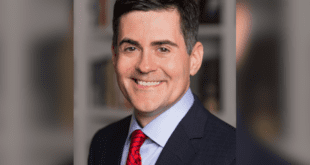Lawmakers Return to Baton Rouge in Effort to Overturn Vetoed Bills
State lawmakers will return to Baton Rouge Tuesday in an effort to overturn vetoes handed down by Gov. John Bel Edwards — something that has grown more common in the Legislature, but this time around is marked by a dose of uncertainty not seen in recent years.
Infighting among Republicans in the state House, election year politics and pressure surrounding a bill to ban transgender health care for minors are poised to collide in a volatile showdown between rank-and-file lawmakers, term-limited legislative leadership and Edwards, a Democrat who also can’t seek reelection.
Confidence in Overturning the Ban on Youth Gender-Affirming Care
Lawmakers across the political spectrum said in interviews Monday that they were confident that the Legislature would overturn the youth gender-affirming care ban, House Bill 648, sponsored by Rep. Gabe Firment, R-Pollock. What happens with 24 other bills and dozens of budget-related line items vetoed by Edwards is an open question.
“There is more uncertainty for two reasons: First, (Edwards) vetoed more bills,” said Sen. Sharon Hewitt, R-Slidell and the Senate Republican leader. “And second, it’s an election year, so people are looking at it through a different lens. … (A vote) will be something your opponents can use and your constituents can look at.”
Difficulties in Overriding Multiple Bills
Mustering the political will to override multiple bills will be difficult, political insiders say. But while legislative leaders have historically controlled veto sessions with an iron fist, House Speaker Clay Schexnayder and Senate President Page Cortez are both term-limited and emerged from the recent regular session weakened by a chaotic budget process that left lawmakers angered.
Coupled with the heightened pressure of an election cycle, that dynamic means any number of vetoed bills could conceivably gain traction, lawmakers say. In a statement Monday, the Louisiana Republican Party asked legislators to reject all of Edwards’ vetoes.
Margins are Narrow but the Unified Front Gives Republicans an Advantage
The bill drawing lawmakers back to Baton Rouge is Firment’s HB 648. The measure would outlaw gender-affirming medical procedures for minors, including hormones, puberty blockers and surgeries. It mirrors bills passed in Republican-controlled state legislatures nationwide that curtail access to medical care received by transgender people.
Louisiana Republican lawmakers have formed a unified front behind the trans health care ban in recent weeks. They have described being inundated by constituent emails and phone calls as well as messaging from conservative lobbying groups urging them to overturn the veto.
The GOP’s supermajorities in both the House and Senate create the appearance that the party is positioned to score easy wins when it comes to overriding vetoes by the Democratic governor.
But even on a bill like Firment’s, the two-thirds majority required to override a veto creates a razor-thin margin for error, lawmakers say. As Edwards’ staff on Monday lobbied lawmakers against overriding his vetoes, according to several people familiar with those conversations, there were murmurs that a handful of House Republicans would not make the trip to Baton Rouge to join in the special session.
Additional Bills and Controversial Issues
Additional bills related to criminal justice and LGBTQ+ issues have generated discussion, including measures to outlaw talk of gender and sexuality in school classrooms and to create a 25-foot buffer around police officers in the line of duty.
Some House conservatives are also pushing to overturn Edwards’ line-item vetoes of cash for local projects, particularly those that span multiple districts.
State Rep. Mike Johnson, R-Pineville and the sponsor of the police-buffer measure, said Monday that he would not seek to overturn the governor’s veto of his bill because he wants to steer the House’s political energy toward the LGBTQ+ measures.
The Veto Override Process and Expectations
In a veto session, bills are taken up by the chamber in which they were drafted. The bulk of Edwards’ vetoes were House bills, so much of the action will occur there. House rules require that bills be taken up in the order they were vetoed, which puts Firment’s bill later in that list.
To take the bill up early, two-thirds of House members must vote to suspend House rules. They would then would have to suspend the rules again to vote on a veto-override before a bill has lain over for 24 hours.
House leadership hopes to take up the trans health care bill on Tuesday, override it, then swiftly adjourn in order to keep the session from snowballing into a free-for-all where bill after bill gets overturned, multiple lawmakers said.
“If they crash and burn on a couple of them, the momentum’s gone,” said state Rep. Mandie Landry, a New Orleans Democrat.
Mizell, the Senate Pro Tem, predicted that the action surrounding the transgender health care bill would dictate the pace of the special session.
“If Gabe’s bill goes first, that’s going to be kind of it,” Mizell said. “If the other bills go before Gabe’s bill, people will be there waiting for their vote on Gabe’s bill.”
 Mind Uncharted Explore. Discover. Learn.
Mind Uncharted Explore. Discover. Learn.



